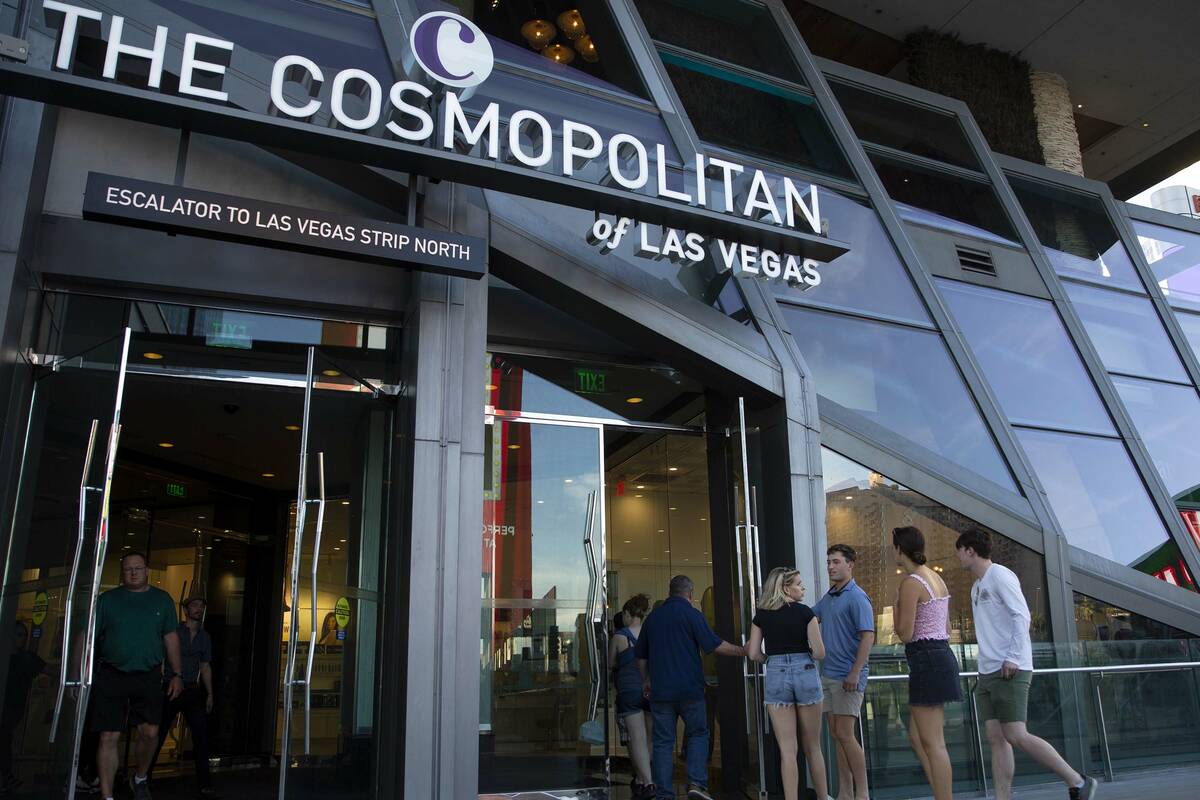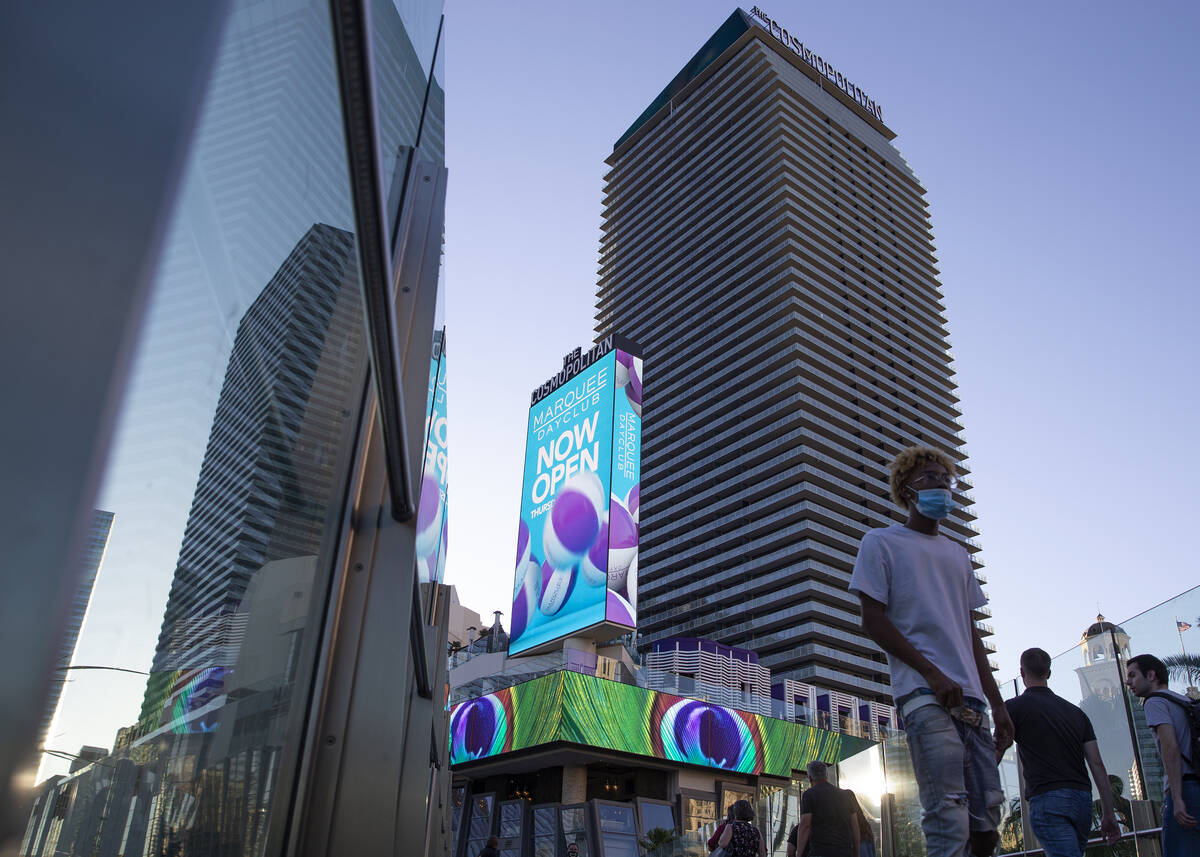Cosmo purchase, Mirage sale highlight gaming moves
MGM Resorts International has announced two blockbuster moves in just over a month.
Can the company’s plans to acquire The Cosmopolitan of Las Vegas for $1.625 billion and sell The Mirage be characterized as a simple trade-off, shedding the oldest Strip property in its portfolio and replacing it with a resort that’s only a decade old?
Analyst Brendan Bussmann said many consumers have viewed The Cosmopolitan as an extension of its CityCenter development because of its proximity. It’s certainly a nice fit within the MGM portfolio and will introduce a younger demographic to the company, considering Cosmopolitan’s database is probably younger than MGM’s.
As for The Mirage, MGM executives acknowledged the sale plan announced last week is in the very early stages.
The two moves make it appear that MGM is satisfied to dominate the south end of the Strip, even as the north end seems to be a more likely growth play with Resorts World Las Vegas open for business and the Fontainebleau and Claudio Fischer’s planned resort coming in the years ahead.
Fischer is the South American resort developer who swung a $120 million deal for 10 acres of Strip-front property where the Riviera once stood.
MGM’s Mirage news came during the company’s earnings conference call. A day after MGM’s call, Penn National had its own conversation with investors with President, CEO and Director Jay Snowden saying that having a property on the Strip isn’t necessarily a formula for success for his company.
In the call, Snowden was clearly disappointed that Penn didn’t win the bidding for The Cosmopolitan, calling the effort a “once-in-a-lifetime opportunity for best-in-class assets.” But then he said Penn doesn’t need a Strip presence to be successful.
Was that Snowden justifying missing on The Cosmopolitan deal, or can a big company like Penn be a big player in gaming without the Strip address?
For Penn, it seems to be the latter.
The company is North America’s largest regional gaming operator with 43 properties in 20 states and 50,000 slot machines, 1,300 table games and 8,800 hotel rooms. The company expects to get even larger in the weeks ahead when properties open in Ontario, Canada.
Penn does operate the M Resort in Henderson but is moving out of its management role at the Tropicana, which will be taken over by Bally’s Corp.
A similar regional gaming company is Boyd Gaming Corp., which has no Strip presence, but has operations in downtown Las Vegas, a Las Vegas locals division with 28 properties in 10 states with 21,400 slot machines, 425 table games and 7,550 hotel rooms.
“Las Vegas has and will continue to be one of the gaming capitals around the globe, and operators want to be a part of it in some way, but it has to be on the right terms,” Bussmann said. “It has to fit their current portfolio and at the right price. It is cliché but timing is everything.”
Bussmann said some could view Snowden’s remark as being contradictory to the theory that you have to be on the Strip to be a player.
“They clearly have a dominating presence across the United States and also with sports betting to add to their existing brick-and-mortar facilities,” he said. “It’s about finding the right opportunity that fits into your portfolio at the time, and this will happen when and if the timing is right for Penn.”
Contact Richard N. Velotta at rvelotta@reviewjournal.com or 702-477-3893. Follow @RickVelotta on Twitter.



















